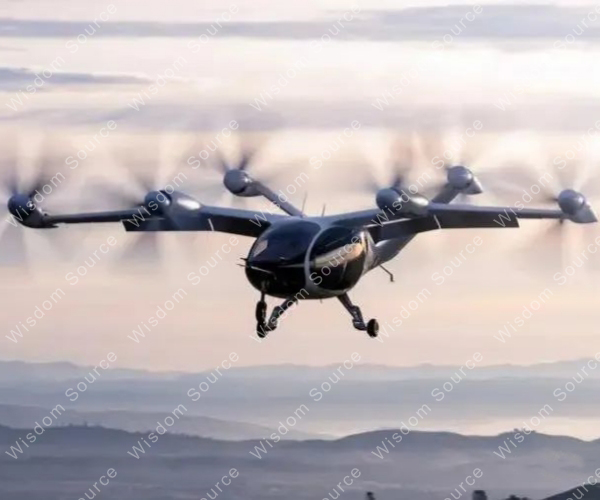Application & Future Prospects of Titanium Alloy In The Low-Altitude Aircraft Market
Application & Future Prospects of Titanium Alloy In The Low-Altitude Aircraft Market
The latest research report of Everbright Securities has analyzed in depth the demand for the main metal materials of flying vehicles. Among them, titanium alloy, as the material for key parts such as body fasteners, accounts for as much as 0.27% of the demand, which is much higher than neodymium iron boron 0.04% and magnesium alloy 0.02%. This data fully demonstrates the important position of titanium alloy in the manufacture of flying vehicles.
As a new type of transportation, the design and manufacture of flying cars require extremely high materials. Titanium alloy has become an indispensable material for the manufacture of flying cars because of its lightweight, high strength, corrosion resistance and other characteristics.In the manufacturing process of flying cars, titanium alloy is not only used in body fasteners, but also widely used in other key parts, such as engine brackets, landing gear, etc. These components have extremely high requirements for the strength, rigidity and corrosion resistance of the material, and titanium alloy is the ideal choice to meet these requirements.
Application Cases Of Titanium Alloy In The Field Of Drones
1. Fuselage Structure: The lightweight characteristics of titanium alloy make it an ideal material for UAV fuselage structure. The UAV fuselage made of titanium alloy can significantly reduce weight, improve flight efficiency and endurance. For example, a certain type of UAV adopts a titanium alloy fuselage structure, which reduces its weight by 30% compared to traditional materials, while increasing its flight efficiency by 20%.
2. Engine Parts: The high temperature strength and corrosion resistance of titanium alloy make it an ideal choice for UAV engine parts. Drone engines produce high temperature and corrosive gases when they are running, and titanium alloys can cope well with these harsh environments. For example, the high-temperature components of a certain type of UAV engine are made of titanium alloy to ensure the stable operation of the engine in a high-temperature environment.

3. Propeller: Titanium alloy propeller has the advantages of lightweight, high strength and corrosion resistance, which can improve the performance of drones. For example, a certain type of UAV uses a titanium alloy propeller, which reduces its weight by 20%, while improving flight stability and handling.
The Market Prospects Of Titanium Alloy In The Low-Altitude Economy
1. Demand Growth: With the vigorous development of the low-altitude economy, the demand for low-altitude vehicles such as flying cars and drones will continue to grow. This will drive the growing demand for high-performance materials such as titanium alloys. According to the research report of Everbright Securities, by 2050, nearly 160,000 flying cars will be put into use worldwide, which will bring huge room for development to the titanium alloy market.
2. Technological Progress: With the continuous progress of technology, the production cost of titanium alloy will gradually decrease, and its performance will be further improved. This will enable titanium alloys to be used in more fields and provide strong support for the prosperity and development of the low-altitude economy.
